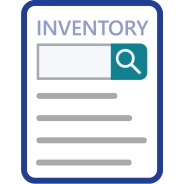
Choose from 5 options:
We are often asked which chemicals are ‘allowed’ or ‘banned’ in Australia. Many people don’t realise that chemicals are regulated on a national level by 4 different government schemes, depending on the intended use of the chemical.
In Australia, there is no single list of banned or restricted chemicals that you can view or download. Bans and restrictions on chemicals and consumer product ingredients – including cosmetics – are regulated by each state and territory authority.
As a first step we recommend that you look at the Poisons Standard where you can search for chemical names and any bans or restrictions, including maximum concentrations. For the Poisons Standard, see the Therapeutic Goods Administration's website.
If you’re importing or making cosmetics, you also need to search our industrial chemicals database (Inventory) to make sure that you're meeting any regulatory obligation attached to the importation or manufacture of each chemical ingredient.
We can limit the importation and manufacture of industrial chemicals by placing obligations on the chemicals we assess, such as:
It is an offence to import or manufacture a chemical if you can’t meet these obligations. To see if there are obligations for an industrial chemical that you wish to import or manufacture, search the Australian Inventory of Industrial Chemicals (Inventory).
The AICIS Executive Director has the power to approve, restrict or prohibit the introduction or export of industrial chemicals listed in international conventions and protocols that Australia follows to protect human health and the environment against the effects of hazardous chemicals. If you wish to import or export chemicals that are listed under these international agreements, check these pages below:
Apply for annual import authorisation - Rotterdam Convention
Apply for annual export authorisation - Rotterdam Convention
Importing or exporting mercury and mixtures containing mercury
There is no single list of banned chemicals in Australia. But there other schemes that play a role in regulating different parts of a chemical's life cycle:
State and territory authorities usually manage compliance with restrictions on the access, use and disposal of chemicals. National standards or codes of practice are reflected in state and territory legislation to provide more uniform controls across Australia.